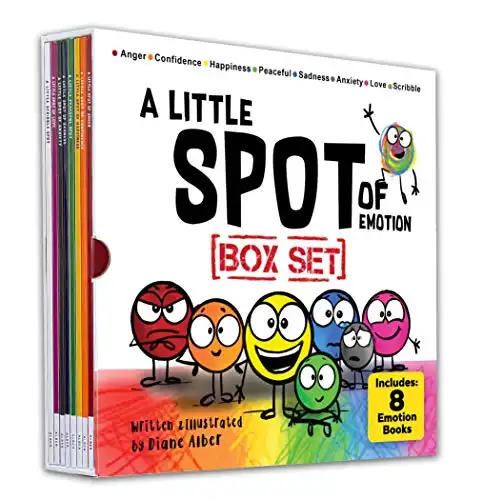Happy Kids: Positive Parenting Approaches to Raising Confident, Joyful Children
Welcome to the wonderful journey of raising happy, confident children through positive parenting. This article delves into various strategies that not only strengthen your relationship with your children but also empower them to be the best version of themselves. Whether you are new to parenting or looking to refine your approach, the insights shared here will help you create a nurturing environment that fosters growth and leads to happy kids and a happy family.
Understanding Positive Parenting
Positive parenting is a modern approach that emphasizes mutual respect, communication, and understanding between parents and children. It’s a philosophy that focuses on building strong, healthy relationships that support children’s psychological growth and development. Here, we’ll explore the foundational beliefs and strategies that characterize this method.
Philosophy Behind Positive Parenting
Positive parenting is rooted in psychological theories that emphasize the importance of fostering secure emotional connections between parents and children. According to research, children who feel understood and supported are more likely to develop into secure, independent, resilient and happy kids. This parenting style is grounded in the principles of attachment theory, which suggests that secure attachments in childhood form the basis for healthy emotional and social development throughout life.
Differentiating from Traditional Parenting
Unlike more traditional, authoritarian parenting styles that often rely on strict discipline and obedience, positive parenting rejects the notion of punishment as a primary teaching tool. Instead, it seeks to understand the reasons behind a child’s behavior and address those underlying causes through teaching and guiding. This method focuses on enhancing a child’s intrinsic motivation to behave well rather than instilling fear of punishment or unconditional compliance.
Strategies for Implementation
Implementing positive parenting involves several strategic shifts in traditional parenting tactics:
- Emphasis on Positive Reinforcement: Instead of focusing on punishing negative behaviors, positive parenting focuses on encouraging and reinforcing positive behaviors. This not only makes children more likely to repeat these behaviors, but it also helps build their self-esteem and satisfaction.
- Collaborative Problem Solving: This strategy involves working with the child to find solutions to behavioral issues or conflicts. It helps children feel respected and part of the decision-making process, which enhances their ability to contribute to discussions and solutions as they grow.
- Educational Discipline: Rather than punitive measures, discipline within the framework of positive parenting is designed to educate children about the consequences of their actions and teach them to make better choices. This approach helps children learn about responsibility and the impact of their actions on themselves and others.
Long-Term Benefits
The benefits of positive parenting extend far beyond childhood, leading to the development of happy kids. Children raised with these methods are often better equipped to handle stress and adversity. They typically exhibit higher levels of empathy, self-regulation, and personal responsibility. Furthermore, because their emotional needs are met through positive interactions, they are more likely to develop healthier relationships with others throughout their lives.
Core Strategies of Positive Parenting
Positive parenting is about fostering an environment where children can grow up feeling secure and valued. The core strategies focus on communication, consistency, and support, all of which help children develop self-discipline, respect, and high self-esteem. Here are detailed explanations and practical applications of these strategies.
Encouraging Autonomy and Independence
Allowing children to make choices and take responsibility for those choices is essential for their development of autonomy and independence. Here are ways to foster this:
- Providing Choices: Give your child choices in daily routines. Options like choosing their outfit, selecting a bedtime story, or deciding between healthy snacks can empower them and help them feel respected.
- Encouraging Problem-Solving: Encourage your child to solve problems independently by guiding them with questions rather than providing direct solutions. For instance, if they are struggling with a toy or a task, ask, “What do you think you could try next?”
- Supporting Exploration: Create safe, supportive environments for your children to explore. Whether it’s a new play area or a supervised activity like cooking, exploration is key to fostering independence.
Reinforcing Positive Behavior
Reinforcing positive behavior is more effective in encouraging good conduct than punishing bad behavior. This approach promotes a positive feedback loop where good behavior leads to positive outcomes. Here’s how to implement it:
- Specific Praise: Instead of vague praise like “Good job,” be specific about what your child did well. For example, “I really liked how you shared your toys with your brother today. That was very kind.”
- Reward Systems: Implement reward systems for good behavior. This could be a sticker chart for young children or earning privileges for older children, like extra screen time for consistent good behavior throughout the week.
- Catch Them Being Good: Often, children are noticed only when they misbehave. Make it a point to “catch” your child being good and acknowledge it. This recognition shows them that good behavior doesn’t go unnoticed.
Setting Realistic Expectations
Children need to know what is expected of them to behave appropriately. Clear, realistic expectations and consistent follow-through provide the structure children need. Here’s how you can set these expectations:
- Age-Appropriate Expectations: Set expectations that are appropriate for your child’s developmental stage. Expecting too much too soon can be frustrating for both of you, whereas expectations that are too low might hinder their development.
- Consistent Guidelines: Consistency in rules and expectations makes the environment predictable and less confusing for children. Discuss these rules and make sure everyone in the family is on the same page.
- Flexibility as They Grow: As children grow, their abilities and needs change. Regularly update your expectations to reflect their developmental progress and individual abilities.
Consistent Routines and Boundaries
Consistency in daily routines and clear boundaries make for happy kids and help them to understand their limits in a healthy, positive manner.
- Establishing Routines: Daily routines, like regular meal times, bathtime & bedtime routines, and study times, provide a sense of predictability and security. They help children understand what is expected of them at various points of the day.
- Clear Boundaries: Set clear boundaries that are fair and consistently enforced. Explain the reasons for these boundaries in terms your child can understand, and ensure they are applied consistently by all caregivers.
By focusing on these core strategies of positive parenting, you create a foundation of trust and respect, which nurtures your child’s development and builds a strong, positive relationship, ultimately fostering happy kids. Each strategy helps in building a framework where children not only feel loved and valued but are also equipped to face the world confidently and responsibly.
How To Promote Emotional Intelligence for Happy Kids
Emotional intelligence (EI) is the ability to understand, use, and manage our emotions in positive ways. For children, developing EI is essential as it helps them communicate effectively, empathize with others, overcome challenges, and defuse conflict. Positive parenting plays a pivotal role in nurturing these skills, leading to the development of happy kids.
Teaching Kids to Handle Emotions
One of the first steps in promoting EI is teaching children to identify and express their feelings appropriately. Parents can help by:
- Modeling Emotional Expression: Children learn a lot from observing their parents. Show your emotions and explain why you feel a certain way in different situations. For example, “I feel frustrated because my computer isn’t working. I’m going to take a deep breath and try to fix it.”
- Validating Their Feelings: Let children know that all feelings are valid, even the uncomfortable ones. Use moments of emotional distress as teaching opportunities, guiding them through their feelings and discussing what might have triggered them. For instance, “I see that you’re upset because you didn’t get a turn. It’s okay to feel sad about that.”
- Teaching Coping Strategies: Help your children develop healthy ways to manage stress and anger. This can include techniques like deep breathing, counting to ten, or using words to express feelings instead of acting out physically.
Role of Parents in Emotional Coaching
As emotional coaches, parents can assist their children in navigating the complexities of their emotions. Key aspects include:
- Setting a Good Example: Children mimic coping mechanisms from their parents. Demonstrate healthy emotional responses to your own challenges and articulate your thought process in managing emotions.
- Communicating Openly About Emotions: Make discussions about emotions a regular part of your daily interactions. Ask your child how they felt about certain events of the day and share your feelings too. This not only builds emotional vocabulary but also enhances emotional understanding. An Emotions chart can be useful for this.
- Encouraging Reflective Dialogue: After an emotional incident, discuss it with your child. Talk about different ways they might have responded and the potential outcomes of those reactions. This reflection helps children internalize emotional lessons and understand the consequences of their actions on others.
Developing Empathy in Children
Empathy is a cornerstone of EI that involves understanding and sharing the feelings of others. Here’s how parents can cultivate empathy:
- Teaching Perspective-Taking: Use stories, books, and even role-playing games to help children see situations from other perspectives. Ask questions like, “How do you think he felt when that happened?” to encourage deeper insight.
- Practicing Kindness and Gratitude: Engage in activities that promote kindness, such as writing thank you cards or helping a neighbor. Discuss why these actions are important and how they make others feel, reinforcing the emotional benefit of empathy.
- Recognizing Emotions in Others: Encourage your child to observe facial expressions, body language, and tone of voice in others to better understand how they are feeling. Discuss these observations and what they might mean about the person’s emotional state.
By fostering these skills in children, parents lay the groundwork for their happy kids to grow into emotionally intelligent, compassionate, and socially competent adults. This training not only benefits individual child development but also improves their ability to form and maintain healthy relationships throughout their lives.
How Nurturing Joy and Confidence Leads To Happy Kids
Raising children who are joyful and confident involves more than just providing for their basic needs. It’s about encouraging their passions, celebrating their individuality, and supporting their achievements. Here are several strategies parents can use to foster these qualities.
Activities that Promote Happiness and Self-Esteem
Engaging children in activities that align with their interests and abilities is key to promoting their happiness and building self-esteem. Consider the following approaches:
- Encouraging Play: Play is crucial for children’s development. It allows them to explore their creativity, learn social skills, and gain self-confidence. Whether it’s structured activities like sports and music lessons or unstructured playtime, ensure your child has ample opportunity to play in ways that they enjoy.
- Pursuing Interests: Support your child in discovering and pursuing their own interests. This might mean enrolling them in dance, art classes, or coding workshops, depending on what sparks joy for them. The act of mastering a new skill or hobby can significantly boost their confidence.
- Outdoor Activities: Spending time in nature can greatly enhance a child’s mood and outlook. Activities like hiking, cycling, or simply playing in a park can be invigorating and refreshing for both you and your child.
Celebrating Small Victories
Acknowledgment and celebration of achievements—big or small—can have a profound impact on a child’s self-esteem. Here’s how to make the most of these moments:
- Recognizing Effort Over Outcome: Make it a point to recognize the effort your child puts into their activities, not just the final outcome. This encourages them to value hard work and persistence, which are important aspects of confidence.
- Sharing Successes: Celebrate successes together as a family. Whether it’s a small accomplishment like tying their shoes or a big achievement like winning a competition, sharing these moments boosts their sense of pride and joy.
- Positive Reinforcement: Use positive reinforcement to encourage good behaviors and achievements. Phrases like “I’m so proud of how you handled that situation” or “You did a great job working through that challenge” can reinforce positive self-perception and motivation.
Encouraging Social Skills
Developing strong social skills is integral to a child’s confidence. Children who feel comfortable and adept in social situations are more likely to enjoy interactions and develop healthy relationships. Here are some ways to encourage these skills:
- Modeling Social Interactions: Demonstrate positive social interactions in your own behavior. Let your child see you interacting kindly and respectfully with others. This modeling teaches them how to behave in similar situations.
- Teaching Conflict Resolution: Equip your child with skills to handle conflicts effectively. Discuss strategies like using words to express feelings, taking turns, and finding compromises. This helps them feel prepared and confident in handling social challenges.
- Providing Social Opportunities: Arrange for various social situations where your child can interact with peers, such as playdates, team sports, or community events. These opportunities allow them to practice and refine their social skills.
By nurturing joy and confidence, parents can help their children develop a positive outlook on life and a strong sense of self-worth, raising happy kids in the process. These qualities not only contribute to their current happiness but also pave the way for a fulfilling and successful future.
Leveraging Online Courses for Enhanced Positive Parenting
For many parents, implementing positive parenting strategies consistently can be challenging, especially without a clear roadmap. This is where resources like the Positive Parenting Solutions course can be incredibly beneficial. Engaging in a structured online course can provide the necessary tools, techniques, and community support to effectively transform your parenting approach, ensuring you raise happy kids.
Introduction to Positive Parenting Solutions
Positive Parenting Solutions is an online program designed to equip parents with the skills to handle everyday parenting challenges calmly and effectively. The course offers a step-by-step approach to understanding and applying the principles of positive parenting in various real-life scenarios. This comprehensive program helps parents foster a more enjoyable, less stressful family environment.
What the Course Offers
The Positive Parenting Solutions course offers a range of features designed to support parents, including:
- Extensive Video Training: The program includes hours of high-quality video content that covers a wide range of topics from toddler tantrums to teenage defiance. These videos provide practical strategies that parents can start using right away.
- Interactive Exercises: Through interactive exercises, parents can apply what they learn directly to their family situations, which helps reinforce the lessons and integrate them into daily life.
- Live Webinars and Q&A Sessions: Regular live sessions offer an opportunity to connect with parenting experts and get personalized advice. These sessions also allow parents to ask questions specific to their challenges and receive expert guidance.
- A Supportive Community: Membership includes access to a private community of like-minded parents. This network can be a great source of support, motivation, and shared experiences, helping parents feel less isolated in their parenting challenges.
Benefits of Enrolling in the Course
Enrolling in Positive Parenting Solutions can provide several benefits:
- Consistency in Parenting Techniques: The course provides a consistent framework for addressing behavioral issues, which can help in applying positive parenting techniques more effectively.
- Improved Parent-Child Relationships: With better tools and strategies at your disposal, you can improve communication and strengthen your relationship with your children, leading to a more harmonious home environment.
- Stress Reduction: By learning more effective parenting strategies, you can reduce the frequency and intensity of family conflicts, thereby lowering stress for both parents and children.
- Confidence in Parenting Decisions: The course empowers parents with knowledge, which boosts confidence in handling complex parenting situations.
For more information or to enroll, please visit Positive Parenting Solutions.
Closing Thoughts From Me
Adopting the principles of positive parenting is not just about fostering good behavior—it’s about nurturing a relationship with your child that is based on understanding, respect, and mutual love. As we’ve explored throughout this article, strategies such as encouraging emotional intelligence, fostering independence, and reinforcing positive behavior play crucial roles in developing happy, confident children.
Remember, the journey of positive parenting is a continuous one, filled with its own challenges and rewards. It requires patience, consistency, and compassion, but the results—seeing your child grow into a confident and joyful individual—are well worth the effort
FAQs
What are the first steps in positive parenting? Begin by building a strong, loving relationship where your child feels secure and valued. Spend quality time together and establish a routine that includes fun and educational activities.
How do I deal with tantrums positively? Stay calm and acknowledge your child’s feelings. Offer comfort and help them express their emotions in words. After the tantrum, discuss alternative ways to handle frustration.
Can positive parenting help with school anxiety? Yes, by providing a supportive environment and encouraging open communication, you can help reduce your child’s anxiety about school and improve their academic performance.
How often should I praise my child? Offer praise that is genuine and specific to the situation. Frequent, meaningful praise can motivate your child and reinforce good behaviors.
What if my positive parenting approach doesn’t seem to work? Be patient and consistent. If challenges persist, consider seeking advice from a child psychologist or counselor to better understand your child’s needs.






